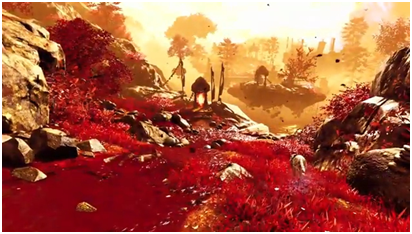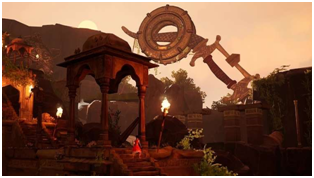Let's start with the question of: What does it actually mean to "monetize your knowledge"?
There's two ways to go about this. The "simpler" one is to offer your knowledge as a service ("consulting"). If you know a lot about a particular problem area, you can sell your time.
But how do you accumulate this knowledge, and how do you know it's worth actual money?
I like to think there's a relatively simple formula for this, and comes down to doing the same thing over and over again: Solving problems.
In fact, you can think of it a little like mining.
We'll start with the problem. This can be almost anything - an obstacle, a bad situation, a shortcoming, the gap between how we want things to be and how they actually are.
If you can identify describe something in terms of a problem, you're already halfway to solving it.
For this to work, though, you have to pick a problem you're very interested in - because in order to level up, you're going to have to solve this problem *a lot*. As in, every day.
It could be anything from "how do I make this app suck less" to "how do I become a famous writer?"
In solving this problem (for yourself, at first), you're going to be putting in a lot of effort. Typically, this will involve:
* Researching and understanding the problem space
* Learning what others have done
* Trying new things yourself
* Solving the problem for others
By consistently applying effort to the problem, you're eventually going to come up with a solution that works: - could be an app, an online store, a workout routine, a framework for thinking about a problem, a repeatable process, a recipe for the perfect chocolate-cherry cake.
But this is obvious, right? You don't need me to tell you that identifying a problem and working on it will eventually lead to a solution. But I do need to start here, because there's so many more things layered in to this simple formula - things you may not even be aware of.
First, a brief intermission to talk about marketing. If you're a creator/maker/problem-solver, chances are you're not really thinking about this - or, worse, you have a bad opinion because you've been subject to shady tactics and scams for a long time. We'll need to fix this.
What is a Market?
It's a place where people gather to buy and sell things. They can be physically located somewhere, accessible over a different channel (like online stores), or purely virtual (like Twitter).
And Marketing?
The activity of making yourself visible in a market.
That's all there is to it. Almost anything you're doing on social media counts as marketing, in that you're making yourself visible and building a reputation. If you're active on Twitter and repeatedly tweet about stuff (like soccer, or technology) you're actually brand-building.
If you want to make a side-hustle (or, a career!) out of monetizing your knowledge, you're going to want to get into the habit of marketing pretty early on.
The easiest way to do this? Identify, discuss, and solve your favourite problems in public.
It might seem counter-intuitive at first ("who wants to see me struggle? doesn't that make me look like I don't know what I'm doing?"), but:
* People love the inside/authentic look
* Being an expert in the problem is just as valuable as being an expert in the solution.
Social media makes this incredibly easy - for no money and very little effort, you can set yourself up to tell your story to the world.
This has another, even more crucial benefit: Exercising your ability to articulate problems and solutions. When you get to sales, this matters.
Back to our formula! We now know that the act of solving the problem itself can have many benefits, specially if we're solving in public and upskilling storytelling as we go.
Now let's zoom into effort. There's a few different things you'll be doing in pursuit of your solution.
This is the key to the whole "monetizing knowledge" concept, and it's important not to miss this:
For us, solving the problem is the least important thing about solving the problem. The most important stuff? Understanding *how* to solve it. Or, to make it clearer:
All that gold stuff is what you're after. Once you've done the hard grind to figure out the solution, this is the stuff you're actually interested in. Like real mining, you're going to blast through a lot of rock before finding the treasure.
You now end up with 2 outputs:
At this point, where most of us "fail" is that we move straight on to the next problem. In fact, now that we've solved the first problem, it ceases to be a problem to us - we have the solution now, why revisit it?
Simple answer: Other people don't have the solution yet.
Let's put it in graphic form. Consider the effort you had to go through in order to get to a solution. What if you simply did this, instead? Used someone else's knowledge to short-cut your way to a solution?
This is what you're doing when you're learning from others.
When you're making use of someone else's knowledge (either by them giving it freely, or you paying for access), you're short-cutting a lot of effort, stress and frustration in figuring out how to solve your problem.
That knowledge, in and of itself, is a solution to a problem.
You might think you want to be in the "monetizing knowledge" business, but you're actually in the problem-solving business. The only difference is, you know you're not just solving problems for their own sake - you're mining knowledge you can package and sell at scale.
So we've covered Problem and Effort, and how that contributes to the mining of Knowledge. Next: Packaging - taking your knowledge and putting it together in such a way that others can use it.
Several ways to do this, all of them made easier by the internet's tools and reach.
This is the next point where most people "fail" - the packaging and distribution of your knowledge takes a lot of work (many multiples over just solving the problem), and initially, you won't see much in the way of revenue from it.
This is why you want to market early and often.
Before moving on to pricing, I want to highlight an example that ticks all the boxes above: Knowledge of how to solve a problem, monetised online, marketed early, built in public:
https://t.co/PkjgNOEmch
It's my favourite for its origin: A popular maker who had built up a large audience over time (by building in public) decided to document his knowledge in book form, pre-sold access, and wrote it in public.
The opposite of building and launching traditionally. And it worked.
So now let's talk about pricing - or, "how much is my knowledge worth"?
There's two answers to this question. The first, and only universally correct answer to "how much should I charge?" is "whatever the market will bear".
As the person with the solution, it likely has less value to you than someone who hasn't yet sunk all the time in, so chances are you're going to underestimate what that solution is worth.
But let's do some math here. You know that you can exchange time for money, right?
Do you know what your hourly rate is? If you're employed full-time, this is an easy calculation. If you're not, consider this simple formula and get a rough idea.
This is just so we can approximately quantify things in money terms. You'll see why in a minute.
For example, I'll use R50/hour. Consider a problem that you're solving for the first time. Would you rather:
* Spend 100 productive hours of your time?
* Spend R500 and save 80% of the effort?
Or, in math terms:
* Spend R5000, or
* Spend R500 + (R5000 X 20%) = R1500
Easy choice, right?
Everyone's going to weigh the value of time and money differently. Some enjoy doing things and learning the hard way (me, usually), others want the solution as quickly as possible, and will pay for the shortcut.
Those are your best customers.
What should you price at? A bit of homework you could do is:
* Find the average hourly rate of your target market
* Estimate how many hours your solution solves
* Sell at a fraction of that.
Excellent example:
https://t.co/j44Y1sAbCg
In the book, the author took a complex, difficult practice (refactoring) that would take someone hundreds of hours to learn, distilled it into a book that you could get value from within 30 minutes, and sold it at a fraction of the time value.
Then quit his job.
We're almost at the end! So far, we've covered:
* The Formula
* Mining for Knowledge
* Marketing and Packaging
* Pricing
* Practical examples
Now for the last topic: Putting this all into practice.
So you've spent some time (2-3 years?) solving a problem. You've mined the knowledge, packaged it up in a way that you can teach others, and you're ready to start bringing in the cash.
You've been marketing as you went, so you have an audience. So what now? Distribution.
There's lots of ways to sell stuff online. If you're looking at selling one-off products (ebooks, etc) you might consider
https://t.co/pFLzsEbYmR,
https://t.co/p69RrzKjf6,
https://t.co/3uSiJA2Jri.
If you're selling courses, consider becoming a Udemy instructor (they have a massive market already, but will take a larger % of your revenue):
https://t.co/wpQdtyDuVR
If you're the roll-your-own type, you can get a self-hosted
https://t.co/S4M7hOxoj8 store built on a cheap Hetzner Cloud, Vultr or DigitalOcean droplet. Throw in
@paystack for payments and you're good to go.
Full disclosure: I'm working on a local alternative to all of the above, designed for South African creators, that removes a huge amount of the pain and just lets you sell stuff and get paid out via EFT weekly. Follow me for updates as this rolls out!
At last! Welcome to the end of the thread, congratulations, I'm glad you made it through 38 (!) tweets, and hope you learned something useful.
As always, I'm open to questions via Twitter. Stay tuned for the next thread - by popular demand, "freelancing on the side".





















